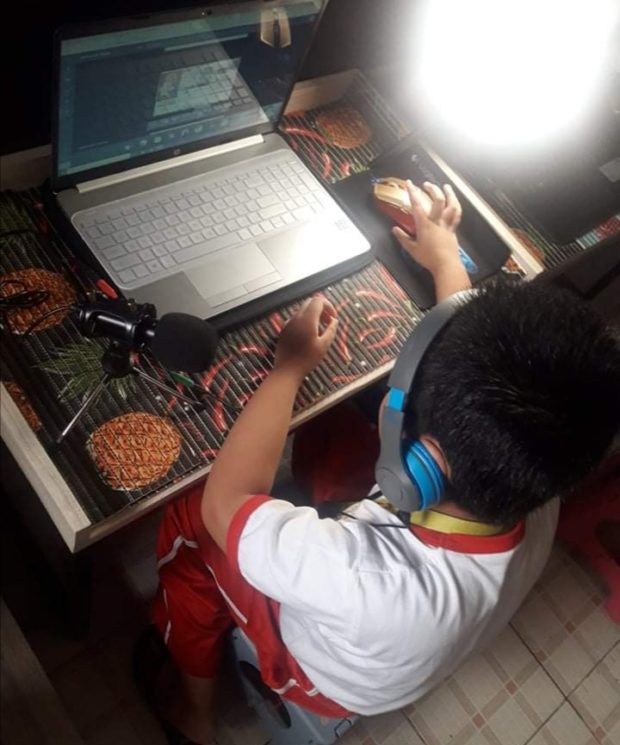
This photo shows 7-year-old Rajo Filio, a Grade 2 student in a private school in Quezon City, participating in his online class on Wednesday, August 12, 2020. Contributed photo
MANILA, Philippines — The Department of Education on Friday said it is looking into reports of so-called “academic dishonesty” while on distance learning wherein parents are supposedly paying to have the modules of their children answered.
DepEd Undersecretary Diosdado San Antonio said tolerating cheating such as this will not be beneficial to students in the long run.
“Ang maliwanag po simula’t simula, binigyang-diin din natin na hindi puwedeng gawin ito kasi hindi ito makakatulong sa pagturo ng honesty, pagiging honest ng mga kabataang Pilipino kung ang mga magulang mismo ang mamimili o ang tutulong sa pagbigay ng sagot,” he said.
(What’s clear is that from the start, we stressed that this should not be done because it won’t help in teaching young Filipinos honesty if the parents will buy or help in giving the answers.)
“Iyon naman po ay pinapatingnan, papatingnan natin sa ating mga kasama at magpapa-validate tayo ng mga naulat,” San Antonio added
(We are having our colleagues look and validate these reports.)
Teachers who would be found involved in any practice involving academic dishonesty will face sanctions, he said.
Doubts on 99% of students passing 1st quarter
It was during a recent Senate hearing when the “sagot-for-sale” scheme was bared wherein parents supposedly pay others to answer their children’s modules.
This came as DepEd reported that 99 percent of students passed on the first quarter of the school year while under distance learning.
San Antonio, however, saw nothing wrong with this findings.
“Ang ibig sabihin ng pasado ay 75 pataas at gusto pa rin po nating walang napag-iiwanan kasi kahit 1% lang po iyan ay hundreds of thousands din iyan,” he said.
(Passing means having a grade of 75 and we want that no one is left behind because the 1 percent could be hundreds of thousands.)
“So ang gusto kong mabigyang-diin ay puwede po talaga na naging mas considerate ang mga kasamang guro natin,” he added.
(I want to stress that it’s possible that teachers were even more considerate.)